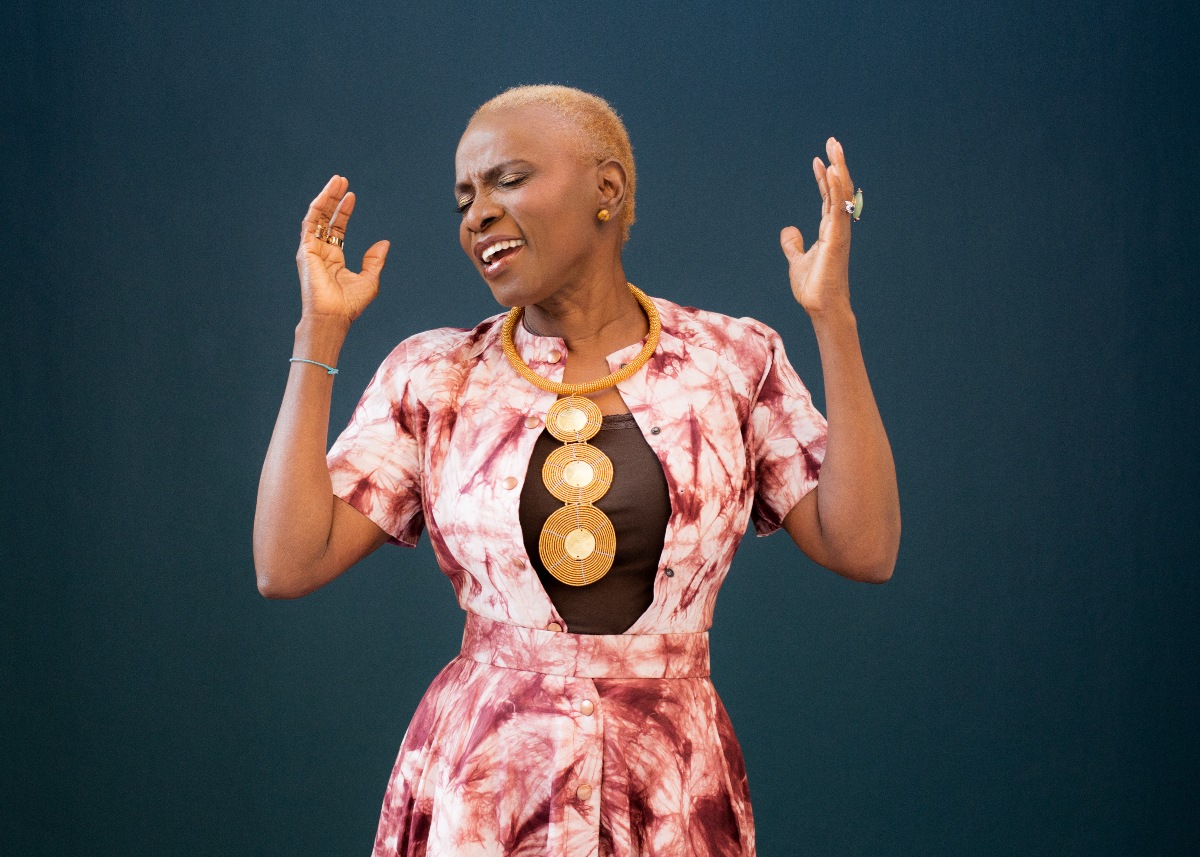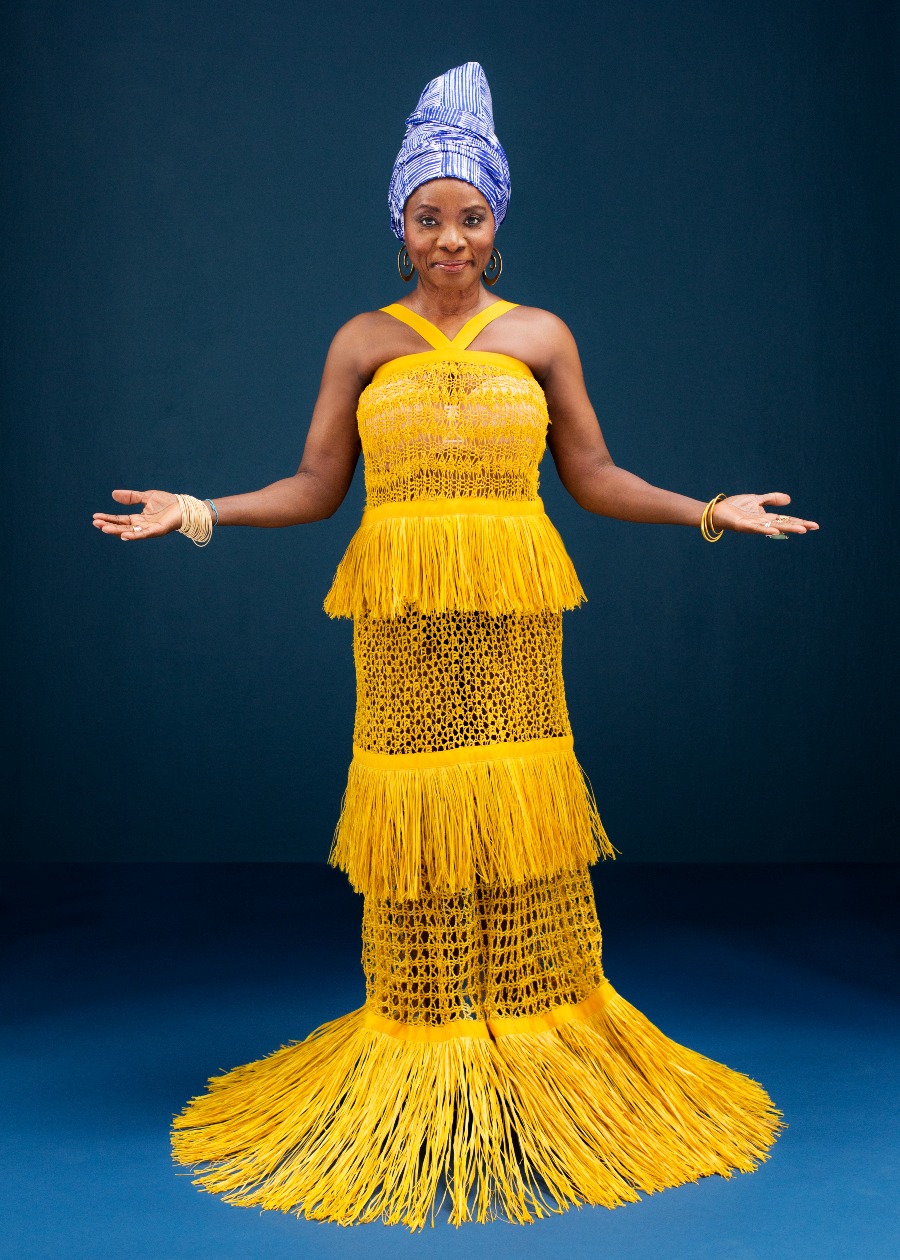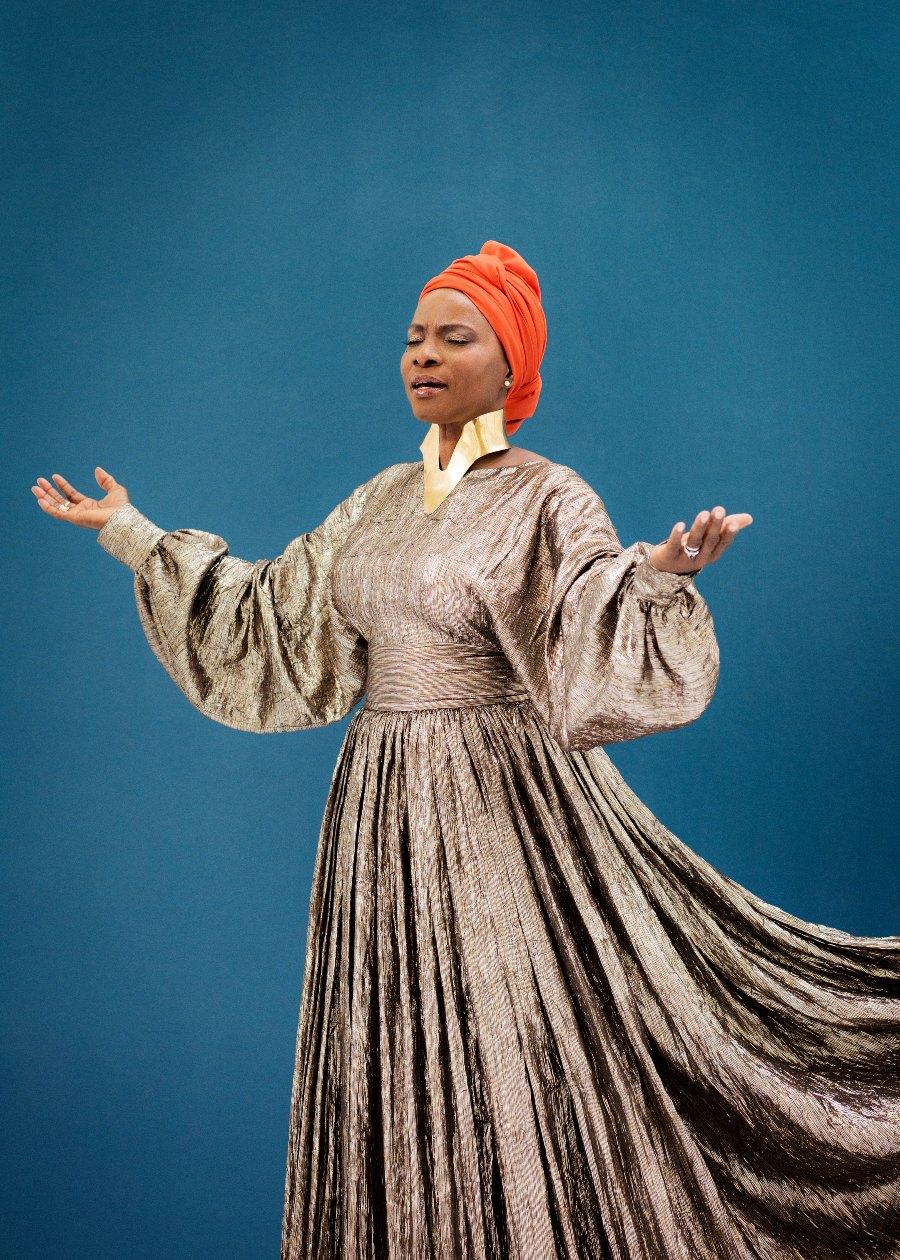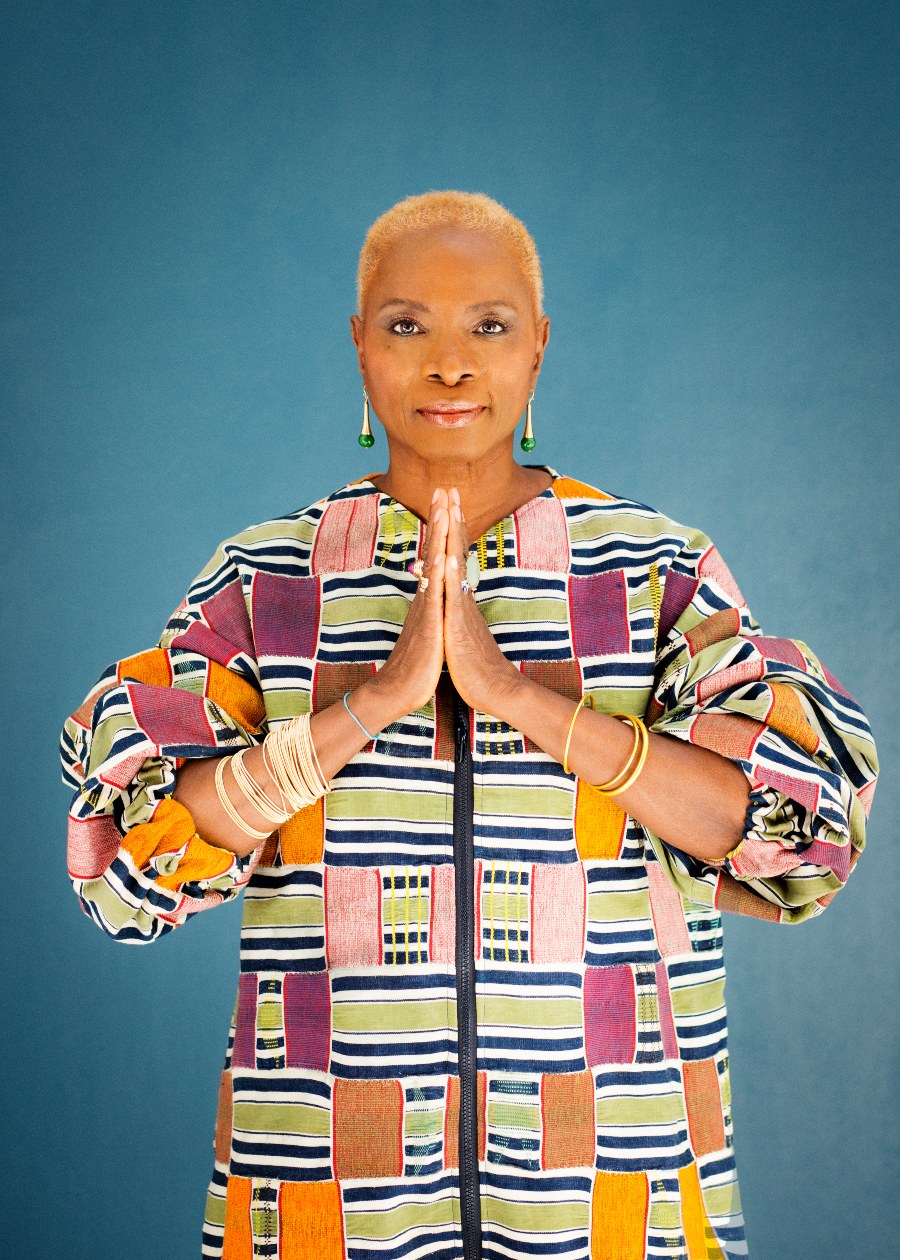THE revolutionary artist of the 21st century is performing at Holland Festival

The singer-songwriter, activist, and inspiration to us all, Angelique Kidjo, is THE revolutionary artist of the 21st century. Since her entry into the music world in the ‘90s, Kidjo has become one of the most respected cultural icons of today. By combining genres, musicians, and subject matter in the unique Kidjo way, her music challenges industry and societal norms alike – winning herself Grammy and other countless awards in the process. But her trailblazing nature doesn’t end there, not only is she a UNICEF ambassador, Kidjo has her own foundation, the Batonga Foundation, which aims at empowering and supporting the most excluded girls in Sub-Saharan Africa. Lucky for us, Kidjo is coming to Amsterdam (with the renowned composer-pianist – and long time friend – Philip Glass) to perform IFÉ in an incredible lineup at this year’s Holland Festival on the 24th of June. We got the honour to talk to Kidjo about her greatest accomplishments, activism, and the exciting work she’s doing this year.

Gc: How are you today?
A: I’m okay. Still getting over jetlag
Gc: Oof yeah I can imagine. Where were you just coming from?
A: I was in Paris and then flew to Los Angeles and then was in Las Vegas for the Grammys then Aliso Viejo, Tucson, Arizona. Now I’m back in Los Angeles at UC Berkeley. But soon I’m going to New York and from New York, I’m going back to Europe.
Gc: I know that Europe to New York jet lag very well I’m from Brooklyn, so…
A: No way haha. I don’t know why but I fly New York to Los Angeles I’m more tired than when I do Paris to New York. It’s just three hours, but your body is just like ‘that’s too quick!’
Gc: Haha. Well, your career has been nothing less than incredible. I could sit here asking you questions about your past accomplishments but honestly, I want to hear your highlights. What have been your favourite things that you’ve done?
A: Being able to do the music that I love to do without anyone telling me not to do it. That’s what was clear to me. In the early ’90s when I signed with Island Records I wanted to make sure that before I signed the deal I would be able to keep my artistic freedom and identity. I didn’t feel the need to fit into any category that was gonna make me somebody different. If you are not you how do you do any art? It was not easy to have that kind of integrity because the industry has a vision and view for you. I say they ‘have a coffin for you to fit’ but I never fit in anybody’s coffin because I demanded that I’m a human being and my art, my culture, the culture of my ancestor, is the person who I am. That was the biggest battle that I won: to do any kind of music I want to and go from one genre to the other while also remaining rooted in my own culture.
Gc: That’s so beautiful. And it’s, it’s every artist’s dream: to have the freedom, to just create and not be limited by what other people want you to make or think you should make. You’re also a very prominent activist. and you even have your own foundation. What has driven and inspired this lifelong mission?
A: Well, I was appointed as a UNICEF ambassador in 2002. Of course, I said yes before I asked the question ‘what does that mean”. Haha. But I was very adamant on one thing. I told them, ‘I’m not going to go to cocktail parties to shake politicians’ hands, I can’t do small talk when there are people’s lives in danger. When kids young men, little girls little boys are in danger I have no time for that stuff’. And they said, ‘what you want to do then?’ I said, ‘women’s rights, children’s rights, Let’s go for it.’ I started in 2002 and the first trip I took made me understand why UNICEF existed. And it was beautiful to see that even though the headquarters is in NY, when you go to the ground, the locals are the ones doing the work because they know what needs to be done. We, the people that are helping, listen to them and act upon their needs. When I took my second or third trip to Africa I started campaigning for children’s rights to go to school. One day a group of mothers come to me and said, ‘we love you. We support what you do, the way you hold yourself, and the way you speak on our behalf. But you need to understand now. A girl may go to primary school, but it doesn’t mean anything if they don’t get secondary education. It means nothing because they’re going to get married and they won’t be able to go to school. So how do we do it?’ That’s when I started thinking about it. An education expert even asked me ‘Angelique, the rate of dropout is so high, why do you waste your energy?’ And my reply was: ‘if it was easy why bother? Just because some girls are going to drop out doesn’t mean we can’t save some of them.’ So I found two people working in a law firm that specialized in education reform and in 2006 we started my foundation. Eventually, I thought, let me document all of the data we have. I was approached by an organization called Population Council from New York that developed a project that is called Girl Roster that was being used in Guatemala. What does it do? It gathers data on communities of girls and women in underserved to figure out how to best help them. So we started in villages and what came from data collection is that they needed a safe space where they can bring knowledge to each other.

Gc: That’s incredible. Not only do you have this musical freedom you’re also completely changing societal systems and uplifting women and girls.
A: I was uplifted too. Uplifted by my mom and my dad. My dad is the reason he’s been the reason why I was inspired to take this initiative. When I was in high school, some of my best friends just dropped off the radar. When I would see them eventually, there would be a baby behind them and they were ashamed. It was a shock for me. I mean, it happened to one of my closest friends. I brought hell out on my dad when I found out and told him he needed to find her but he told me we couldn’t get involved in her private life. But eventually, he found out that her family sent her away to get married. I cried for days because I lost my best friend. So I wanted to do something. it’s still hard talking about it today for me because it’s a waste of life. Reality changes when you become a mother and she was what, 12?
Gc: That is heartbreaking I’m so sorry. Activism is also very present in your music, especially in Mother Nature – which by the way, is just such a beautiful tapestry of genres and topics that weave together to make this just beautiful entity on its own. Can you tell me the story behind this album? What inspired you? How did it come to be?
A: This album had been In me for the last 10 years because I’m constantly travelling around the world and revisiting the same places. I started seeing how these places change and disappear. The sea has eaten up a lot of space in places like Africa. When I was there with UNICEF I was seeing different types of people on the streets in the cities. And I was like ‘who are those people?’ They don’t belong in the city. I learned they are farmers wandering around the city because there’s nothing to harvest. And I’m like ‘this is dangerous’. People that are feeding us cannot find anything to do. And then I say, ‘now let me sit down and think about this, how can this be done?’ I can’t talk about climate change alone because everybody’s going to be impacted. The album is a mirror of our society and all the issues we talk about on it are what is impacting Earth: human rights, gender equality, our dedication and our duty to do right by mother nature. We can’t just sit around and just talk and think that the leaders of this world will have the answer. We can do many things in our daily that will help generations to come. Plastic consumption for example.

Gc: Changing gears, we’re not even halfway through 2022 and you’ve already had multiple exciting and big projects. First of all, you were on a movie sets for the Woman King! What was that experience?
A: Well, it’s interesting to see how different arts can intertwine because everything is linked through the body and in nature. It was a great experience because the story of the Amazon in Benin is not known. It’s interesting to see how men have hijacked the story of humanity. It’s all men, we women do nothing, we just don’t count. Women simply bring their children to the world. The Woman King is a complex story because it’s about a Queen that creates the army of the Amazon in our country. Even in our country, we erase her from this story, she’s nowhere to be seen because it’s only Kings. So I think that it’s extremely important to tell the story and return the history.
Gc: Yeah, definitely. Moving on to your next project of the year, Yemandja. Could you walk me through the play and the mythology that’s involved?
A: Yemandja is the goddess of the sea and water in the Yoruba religion. The story is told from the perspective of the gods. Oya, the god of wind, is blowing the slave ships across Yemandja while Yemandja is trying to figure out how to give rest to the souls that are thrown into the water dead from the ship. The story of slavery is still very much alive in the way this society is structured. If we don’t dare to talk about it, there will always be pain on both sides. So that’s what I’m offering in the story. redemption, not destruction.
Gc: It seems that mythology has played an important role throughout a lot of your music and career. What would you say kind of draws you to these very classical stories or, or characters?
A: If you take the Greek mythology Hera is Yemandja, the mother of all. And the thing is, we just discuss Greek mythology without knowing it’s from Africa. There’s a lot to learn from the gods because they are not perfect and that imperfection speaks to us because we are not perfect. The gods and goddesses of the regions all represent an element of humanity so it speaks better to us and teaches us that we are not perfect, but we can always redeem ourselves. We can do, we can make mistakes.
Gc: As humans, we made up all, these myths and these stories so long ago to help us understand the world.
A: Until somebody came up with one God…

Gc: Hahaha yeah. Besides the Holland Festival coming up in June, Do you have any other exciting projects for this year?
A: Oh yeah.
Gc: So you’re just not getting sleep this year then…
A: I mean, I have one life I have to live it fully. Once I’m 60 years old it’s too late, I can’t go back and fix anything. I’ve been working on a project with Ibrahim Maalouf who is from Lebanon. We wanted to explore a link between Africa and the Middle East. So I started doing research and I stumbled upon the riddle of Queen Sheba. She took a tree to find out if the king Solomon was as wise as people said. To test his wisdom, she asks endless riddles. So for the project, I picked seven and we wrote the music. It’s going to come out in June.
Gc: I can’t wait! Moving on to the Holland Festival. You are working again with Philip Glass. How did that initial collaboration come between you two?
A: Well, I’ve known Philip since the early nineties when I released my first album. We had the same PR together and I was in New York doing some promo and I didn’t have anybody to accompany me on the piano. My PR agent asked him if he wanted to play the Piano with me on the song so he got the chart music and we’ve been friends ever since. Then many years later the London philharmonic artistic director Timothy Walker came to New York and I was the voice on the closing guitar piece of his performance. He came to me after and said, ‘sorry for my ignorance, I don’t know who you are but your voice is amazing. Have you ever thought started singing in classical orchestras?’ Now I’m looking at this guy like this he had been smoking something. ‘Me? Classical music? Are you crazy or what?’ And then he said, ‘yes, yes.’ Then he came back a year or two after for another performance and I met up with him after the concert and he said to me, ‘Angelique, I’ve been thinking we need somebody like Philip Glass’, and I said, ‘Philip Glass? He’s a friend of mine!’ And he looked at me like mhm sure. So I call up Philip who happens to be in NY and say ‘hey I’m with Timothee walker from the London Philharmonic and he would like to speak to you about a project he would want to do with me but he’s leaving tomorrow evening.’ So he said ‘yeah come over for coffee.’ Timothy looked at me and I gave him Philips’s address and said ‘I’ll meet you there.’ I saw him coming out of the taxi going is this real? We ring the bell and Philip opened the door and he takes a step back like Philip Glass is opening the door for me? So we start in his kitchen and Philip said ‘your tea is up there’ So what do you want, can I pour you a coffee? The guy was just struck…hahaha. I made my tea and then Philip poured him coffee and we started talking and Philip Glass said ‘yeah I’ll do that’ And then just like that we made music.
Gc: What a hilarious story haha.
A: I mean, you never know who knows who, right?
Gc: Especially in an industry like the music industry.
A: Ooh yeah, everybody knows everybody.
Gc: So you’re going to be performing the piece IFÉ. Do you think its meaning changes when it’s placed in conversation with the other acts?
A: Everything is connected to what I’m doing and that’s the beauty of arts. We all have a different approach is what makes us all unique. And I accept that we have a different view of the world and that’s healthy. Right? I don’t want to look like everybody else. Some people might want that, but I like the word diverse.
Gc: My final question is twofold. What do you hope that the listeners take away from the Holland Festival performance and what do you hope to take away from performing there?
A: Well, first of all, I hope that people that come will come with open minds. To be open to themselves and to be able to absorb what we are bringing to the table because this world is changing, it’s ever-changing and we artists sensitive to those changes In our work. So we offer a perspective that can allow people to think about themselves and their vision of the world. And what I would take out of that…appreciating the people that I’m going to meet and the way that they do art. Because for me, it’s always learning something. I don’t know everything, and I’m not ashamed to say it. I’m always willing to learn. As my father said to us, ‘you learn on till you die because life is about learning from our mistakes, it’s about listening to others that know something that we don’t know.’ And that will always stay with you. You have to stay humble. Otherwise, you’re just a fool.
Photos courtesy of Holland Festival
Get tickets to see IFÉ here
Get tickets to see Mother Nature here
Check out the full Holland Festival schedule
Words by Ella Paritsky